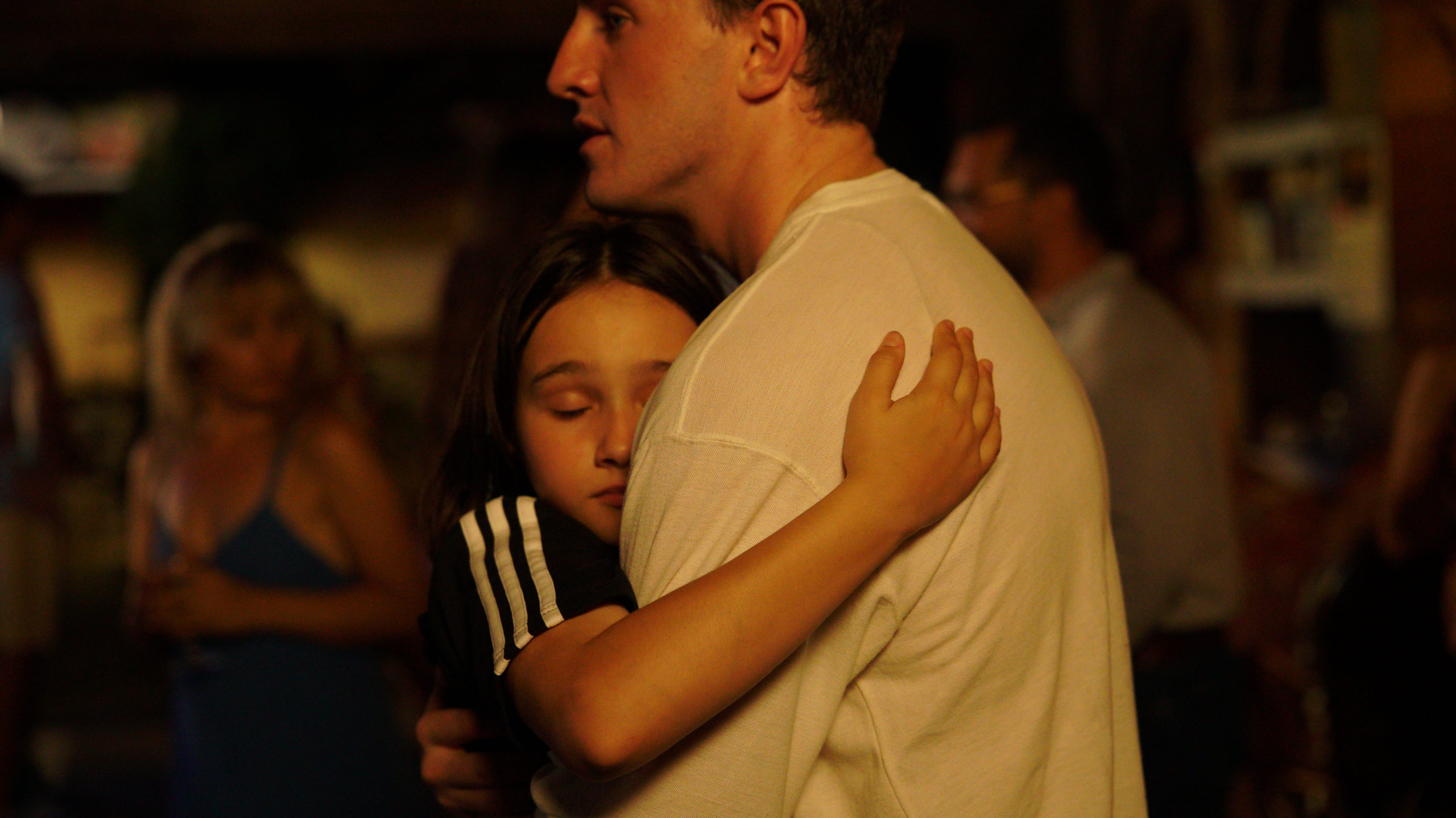
Film Review: Aftersun
Film Reviews
Aftersun
Director: Charlotte Wells
A24 and Screen Scotland
In Theaters: 10.21
Behind the soft, colorful cinematography and melancholic pace of Aftersun—director Charlotte Wells’ feature debut—is a heart wrenching tale of a father-daughter vacation at a cheap resort in Turkey. Although absolutely anyone can emote along to the chipping layers and gradual unraveling of this film, I felt particularly connected to it, being an only child raised by a single father myself. With simple, delicate execution, Aftersun explores the intricacies of relationships and memory.
Paul Mescal (Normal People, The Lost Daughter) plays Calum, a young, single father with a difficult life of his own—those difficulties never fully revealed throughout the film. Frankie Corio stars alongside Mescal in her debut acting role as Calum’s 11-year-old daughter, Sophie, who is an observant and curious child always silently soaking in her surroundings. Sophie lives with her mother full-time, but the film chronicles a short vacation with her father under the Turkish sun at a beach-side resort. Every sweet moment says so much, and it tastes like a much-needed ice cream cone on a sunny day. Aftersun reminded me most of Call Me By Your Name with its momentum, hues and comely architecture, but this remains a truly original work of art.
Calum and Sophie have a tender relationship. While they sometimes butt heads as families do, they have an unconditional love that radiates from the screen. They goof around and are comfortable around each other, showing that their home is within one another. The two place you in their world, as the characters are in their own world within the film. They use a VHS camera to capture the memories of their giggles, dancing, scuba diving and mud bath ventures. Aftersun springs you back into adolescence as you watch Sophie navigate her environment, interact with big kids and experience the world from one vacation activity to the next.
It’s evident that Wells is portraying this trip as a memory, specifically Sophie’s, as we see glimpses of adult Sophie—the same age of Calum at the time of the vacation—watching back her VHS footage and recalling the memories on and off camera. I found myself longing to know more about Calum as Aftersun slowly unveils his struggles and efforts to conquer them through meditation, tai chi and impulse spending. The audience is hidden from the full picture, as the film portrays the memory of Sophie, as well as the unsaid yearning she has to understand her father and dig through her childhood from the eyes of an all-grown-up Sophie.
Calum and Sophie both recognize in each other what the other doesn’t know they see, but each are still unable to see the full picture as they are different people, different ages with different lives. For example, Sophie has noticed her father’s lack of money, and it comes as a shock to him when she points out this detail, but Sophie still can’t fully relate to or comprehend its complexities. The exploration of such an earnest, wholesome and complex relationship is one you won’t be able to get out of your mind.
Aftersun’s writing brilliantly captures an indescribable pain behind the vibrance and warmth memory affords with its cinematography, performances and soundtrack, which consists of late-’90s summery, dance tracks such as “My Oh My” by Aqua and “5, 6, 7, 8” by Steps. Cinematographer Gregory Oke maintains a level of dreaminess through its sweet, bright color palette, but he contrasts with dark, nightmare-like sequences sprinkled throughout the feature. Oke also leaves a lingering feeling of danger in the shadows with off-centered framing. The script leads one familiar with tropes to assume that danger is near. This implication of possible hazard evokes a worry induced by Sophie’s memory, sitting in the shadow of the film’s light hues and pop songs.
It wasn’t until a couple of minutes after the credits began rolling that the tears came rushing down my cheeks. Wells has the ability to awaken deeply rooted, concealed feelings, then snap a finger and let it erupt. It’s the ability to portray the pain of growing up and realizing we will never fully understand what our parents were feeling, thinking and dealing with. Yet, we relate most when we’re adults ourselves, dealing with issues of our own while being the furthest away from our parents than we’ve ever been. –Birdy Francis
Read more from Birdy Francis:
Film Review: American Murderer
Film Review: Halloween Ends